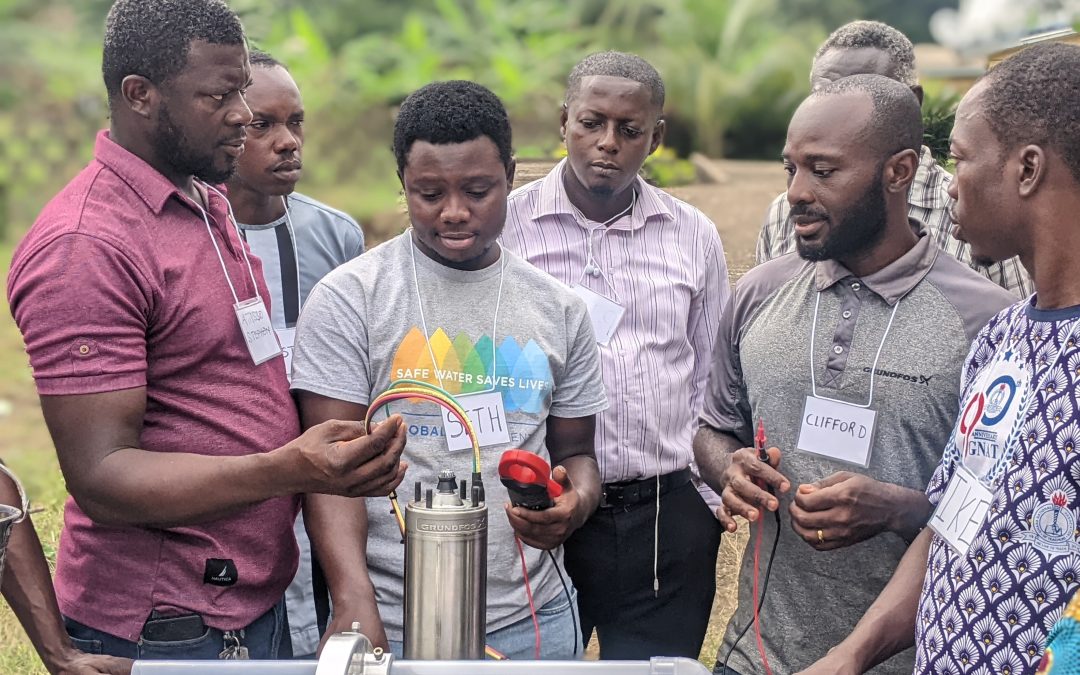Seth Boateng, third from left, and his classmates receive practical hands-on training at a water treatment plant in Ghana.
Click here to read the full interview with Seth and learn more about Global Water Center’s initiatives in Ghana.
After attending a training with Global Water Center in Kukurantumi, Ghana, Seth Boateng started to think more about whether the water in his community was safe to drink.
Boateng was among a group of teachers at St. Paul’s Technical School who were trained to deliver a new curriculum on water technology.
“Before the training, we knew that drinking unsafe water was not good,” said Boateng, who works as a teacher in the school’s electrical department. “But most of us thought drinking water that is clean by [the] eyes is good for human consumption.
“We got to know that not all water that looks clean is good. You have to really know the state of the water before you consume it,” he continued.
With three-week sessions in both July and September, the high-quality technical and vocational training program was facilitated by several of GWC’s partners and collaborators, including Grundfos Ghana, Safe Water Network, Cleanearth Scientific, Deutsche Gesellschaft fur Internationale Zusammenarbeit (GIZ) GmbH, Ghana TVET Service, Eljen Company, and Water Mission.
The curricula, National Certificate I and II in Water Technology, was developed by GWC and its project partners, and has been approved by the Commission for Technical and Vocational Education and Training (CTVET) in Ghana.
The training included both theory and practical hands-on sessions, as well as field trips to water treatment plants. Boateng had the opportunity to disassemble a pump and watch different pumps in action. He also learned how to use turbidity instruments and pH instruments to check water quality.
Now, Boateng is on mission to help others realize that not all water that looks clear is safe to drink.
“For me personally, it really changed how I drink water,” he said. “I have to check whether it is potable water before I consume it.”
Many people in Boateng’s community believe that untreated river water or borehole water is safer than treated water. However, untreated water can be contaminated and cause health issues.
“The misconception about treated water is high in our community so I really want to make an impact by letting them know that water must be treated before it is consumed,” he explained
According to the World Health Organization (WHO), “Microbiologically contaminated drinking water can transmit diseases such as diarrhoea, cholera, dysentery, typhoid, and polio and is estimated to cause approximately 505,000 diarrhoeal deaths each year.”
Along with the other trainees, Boateng will become a teacher of the newly approved CTVET water technology curricula in Ghana. Through equipping teachers at St. Paul’s, GWC hopes many others in Ghana will learn about the importance of safe water.
“I really want to teach this course because even my friend that I used to work with is still challenging me that borehole water is better than treated water,” Boateng said. “I think this education, when it gets to the public, will save a lot of lives.”
GWC and its partners will support the teachers at St. Paul’s as they continue to roll out the new curriculum in 2024.
This project is funded by the Grundfos Foundation. GWC, project partners, and St. Paul’s Technical School are grateful for their support.
Written by Lizzy Haseltine

